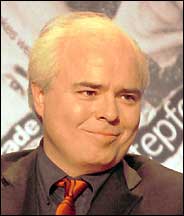Prince of Wales
| A report has appeared on Regulation of Practitioners of Acupuncture, Herbal Medicine, Traditional Chinese Medicine. The report is written by people all of whom have vested interests in spreading quackery. It shows an execrable ability to assess evidence, and it advocates degrees in antiscience It would fail any examination. Sorry, Prof Pittilo, but it’s gamma minus.[Download the report] | 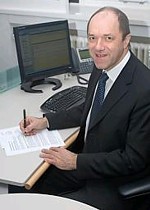 |
Alice Miles put it well in The Times, today.
“This week came the publication of the “Report to Ministers from the Department of Health Steering Group on the Statutory Regulation of Practitioners of Acupuncture, Herbal Medicine, Traditional Chinese Medicine and Other Traditional Medicine Systems Practised in the UK”. Otherwise known as twaddle.” . . .
“Regulate the practitioners – for safety, note, not for efficacy, as that is impossible to prove – and you give them official recognition. From recognition it is but a short hop to demand and then prescription: packet of Prozac, bit of yoga and a bag of dodgy herbs for you, sir.” . . .
“The Government responded on Monday – with a three-month consultation. So join in. Write to the Health Minister Ben Bradshaw at Richmond House, 79 Whitehall, SW1A 2NS. Write, on behalf of the NHS: “What I want for my 60th birthday is… the chance to provide medical, dental, and nursing care to all. And absolutely nothing else.”
Judging by Ben Bradshaw’s speech to the Prince’s Foundation, there may be a problem in conveying to him the evidence, but one can and must try.
Why is it that a health joutnalist can do so much better than a university head? Yes, the chair of the steering group is Professor R. Michael Pittilo BSc PhD CBiol FIBiol FIBMS FRSH FLS FRSA, Principal and Vice-Chancellor of The Robert Gordon University, Aberdeen. Despite all those impressive-lookin initials after his name, I believe that this is a very bad report.
Here is something about Prof Pittilo from his university’s web site (the emphasis is mine).
Professor Michael Pittilo joined The Robert Gordon University, Aberdeen, as Principal and Vice-Chancellor on 5th September, 2005.
After postdoctoral research on arterial disease at the University of London, he was appointed to Kingston University where he became Head of Life Sciences. In 1995 he became Foundation Dean of the Faculty of Health and Social Care Sciences at Kingston University and St George’s Medical School (University of London). He was appointed Pro Vice Chancellor at the University of Hertfordshire in 2001.
Professor Pittilo has held a number of additional roles, including chairing Department of Health working groups, and as a trustee for the Prince of Wales’s Foundation for Integrated Health. “
Notice that Prof Pittilo is a Trustee of the Prince’s Foundation for Integrated Health, source of some of the least reliable information about alternative medicine to be found anywhere.
This steering group is, as so often, a nest of vested interests. It does not seem to have on it any regular medical or clinical scientist whatsoever. Why not? They just might produce some embarrassing facts perhaps? Like most government committees its members seem to have been chosen to produce the desired outcome.
For a start, the university run by Prof Pittilo, Robert Gordon’s University, is itself involved in a few antiscientific courses. Since his report recommends that degrees in quackery should become mandatory, I expect he’d welcome the chance to run more. Amazingly, Robert Gordon’s University runs an Introduction to Homeopathy, just about the daftest of all the common sorts of magic medicine.
Most of the the members of the steering group represent vested interests, though strangely this is not made clear in the list of members. An earlier report, in 2006, from the steering group was more open about this. Twelve of the members of the group represent Herbal Medicine, Chinese Medicine and Acupuncture (four from each). Most of the rest are lay members or bureaucrats. With membership like that it is, I suppose, not surprising that the assessment of evidence is, to put it kindly, grossly distorted and woefully inadequate.
The report starts badly by failing to mention that the House of Lords report (2000), and the government’s response to it, set the following priorities. Both state clearly
“… we recommend that three important questions should be addressed in the following order . .
- (1) does the treatment offer therapeutic benefits greater than placebo?
- (2) is the treatment safe?
- (3) how does it compare, in medical outcome and cost-effectiveness, with other forms of treatment?
The word ‘placebo’ does not occur a single time in the main report (and only twice in the text of the seven appendices). But they do say (page 11):
“We recommend that public funding from the NHS should be used to fund CAM therapies where there is evidence of efficacy, safety and quality assurance.”
The evidence
The problem is that the assessment of the evidence for efficacy in the report is pathetically poor. The report, sad to say, consists essentially of 161 pages of special pleading by the alternative medicine industry, served up with the usual large dose of HR gobbledygook.
There is really no excuse for this utterly incompetent assessment. There have been plenty of books this year alone that make excellent summaries of the evidence, mostly written for the lay public. They should, therefore, be understandable by any university vice-chancellor (president). The one benefit of the upsurge in public interest in magic medicine is that there are now quite a lot of good clinical trials, and when the trials are done properly, they mostly confirm what we thought before: in most cases the effects are no more than placebo.
Here is one example. Annexe1 concerns “Developing Research and Providing an Evidence Base for Acupuncture and Herbal/Traditional Medicine Treatment”. The wording of the title itself suggests, rightly, that this evidence base does not exist, in which case why on earth are we talking about them as “professions”? The discussion of the evidence in Annexe 1 is nothing if not partial. But what do you expect if you ask herbalists to assess herbal medicine? An honest assessment would put them out of business. The eternal mantra of the alternative industry appears as usual, “Absence of evidence is, of course, not evidence of absence”. True of course, but utterly irrelevant. Annexe 1 says
“Acupuncture is a complex intervention and lack of a suitable placebo control has hindered efforts to evaluate efficacy”
This is simply untrue, In recent years enormous efforts have been put into devising controls for assessment of acupuncture, but they are entirely ignored here. One thing that has been established quite clearly is that it makes no difference where you put the needles, so all the talk of Qi and meridians is obvious mumbo-jumbo.
Have the authors of Annexe 1, and Professor Pittilo, not read the relevant studies? Two books this year have dealt with the question of evidence with great care. They are both by people who have been involved personally with acupuncture research, Prof Edzard Ernst and Dr Barker Bausell. Edzard Ernst is the UK’s first Professor of Complementary Medicine. Barker Bausell was research director of an NIH-funded Complementary and Alternative Medicine Specialized Research Center at the University of Maryland.
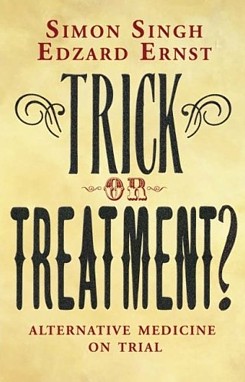 |
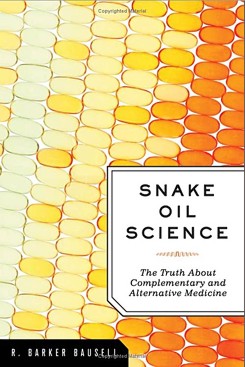 |
Singh and Ernst discuss thoroughly the question of controls and assess all the evidence carefully. Their conclusions include the following.
- The traditional principles of acupuncture are deeply flawed, as there is no evidence at all to demonstrate the existence of Ch’i [Qi] or meridians.
- By focussing on the increasing number of high-quality research papers, reliable conclusions from systematic reviews make it clear that acupuncture does not work for a whole range of conditions, except as a placebo.
- In short, the evidence is neither consistent nor convincing. It is borderline.
Barker Bausell was himself involved in designing and analysing trialsof acupuncture. His conclusions are even less positive.
“There is no compelling, credible scientific evidence to suggest that any CAM therapy benefits any medical condition or reduces any medical symptom (pain or otherwise) better than a placebo”.
These are serious authors with direct experience in CAM research, which is more than can be said of anyone on the steering group. Why are their conclusions ignored entirely? That is sheer incompetence.
Degrees in anti-science
One conclusion of the report is that
“The threshold entry route to the register will normally be through a Bachelor degree with Honours”
This is utter nonsense. It is quite obvious surely that you can’t award honours degrees until after you have the evidence. You can read on page 55 of the report
“3a: Registrant acupuncturists must:
understand the following aspects and concepts for traditional East-Asian acupuncture:
– yin/yang, /5 elements/phases, eight principles, cyclical rhythms, qi ,blood and body fluids, different levels of qi, pathogenic factors, 12 zang fu and 6 extraordinary fu, jing luo/ meridians, the major acupuncture points, East-Asian medicine disease categorisation, the three burners, the 4 stages/levels and 6 divisions
– causes of disharmony/disease causation
– the four traditional diagnostic methods: questioning, palpation, listening and observing”
This is utter baloney. Anyone who advocates giving honours degrees in such nonsense deserves to be fired for bringing his university into disrepute (and, in the process, bringing all universities and science itself into disrepute).
That includes also degrees that teach that “amethysts emit high yin energy“.
So what should be done?
If making peole do degrees in mumbo-jumbo is not the answer, what is? Clearly it would be far too draconian to try to ban quackery (and it would only increase its popularity anyway).
The answer seems to me to be quite simple. All that needs to done is to enforce existing laws. It is already illegal to sell contaminated and poisonous goods to the public. It is already illegal to make fraudulent advertisemants and to sell goods that are not as described on the label.
The only problem is that the agencies that enforce these rules are toothless and that there are a lot of loopholes and exceptions that work in favour of quackery. I have tried myself to complain about mislabelling of homeopathic pills to the Office of Fair Trading on the grounds that are labelled Arnica 30C but contain no Arnica. They solemnly bought a bottle and sent it to an analyst and of course they found no arnica, But nothing happened, because an exception to the usual law applies to homeopathic pills.
The Advertising Standards Authority is good as far as it goes. They quickly told Boots Pharmacies to withdraw advertisements that claimed CoQ10 “increased vitality”. But they can exact no penalties and they can’t deal with lies that are told to you orally, or with anything at all on the web.
The Health Professions Council (HPC) says that one of the criteria for registering new professions is aspirant groups must “Practise based on evidence of efficacy”. If that were actually applied, none of this process would occur anyway. No doubt the HPC will fail to apply its own criteria. On past form, it can be expected to adopt a “fluid concept of evidence“.,
One more thing, New European legislation was described recently in the BMJ
“Consumers in the United Kingdom are to receive stronger legal safeguards against products that claim, without any identifiable scientific evidence, to provide physical and mental health benefits such as tackling obesity or depression.”
“The scope of the legislation is deliberately wide and is the biggest shake up in consumer law for decades. It targets any unfair selling to consumers by any business.”
Politicians seem to be immune to rational argument when it comes to quackery. But a few legal actions under these laws could bring the house of cards tumbling so fast that this gamma-minus report would become rapidly irrelevant. There will be no shortage of people to bring the actions. I can’t wait.
Follow up
Dominic Lawson, 24 June 2008. An excellent column appeared today in the Independent. Dominic Lawson writes about the Pittilo report: “So now we will have degrees in quackery. What, really, is the difference between acupuncture and psychic surgery?“. The reference to that well known conjuring trick, “psychic surgery” as a “profession”, revealed here, causes Lawson to say
“It makes it clear that the lunatics have taken over the asylum. For a start, how could Philip Hunt, previously director of the National Association of Health Authorities and Trusts, possibly have thought that “psychic healing” constituted a “profession” – let alone one which would “develop its own system of voluntary self-regulation?”
“One can see how this might fit in with the Government’s “never mind the quality, feel the width” approach to university education. One can also see how established practitioners of such therapies might see this as a future source of income – how pleasant it might be to become Visiting Professor of Vibrational Medicine at the University of Westminster.
Thus garlanded with the laurels of academic pseudo-science, the newly professionalised practitioners of “alternative medicine” can look down on such riff-raff as the “psychic surgeons”
Once again I have to ask, how is it that we have to rely on journalists to prevent vice-chancellors eroding academic standards; indeed eroding simple common sense? I guess it is just another sign of the delusional thinking engendered by the culture of managerialism that grips universities.
After writing the recent post Boots reaches new level of dishonesty with CoQ10 promotion, I sent a complaint about the dishonesty of the advertisements to the Advertising Standards Authority. I got a surprsingly fast response. On April 22 I got
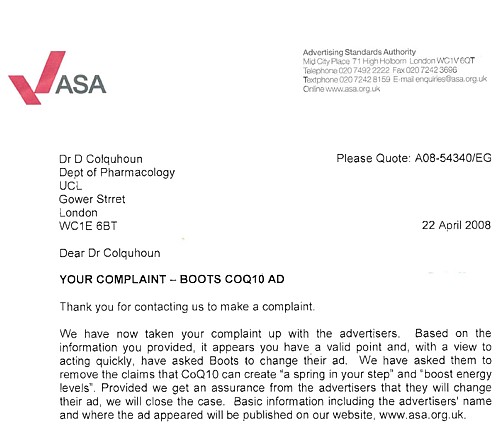
“it appears you have a valid point and, with a view to acting quickly, have asked Boots to change their ad. We have asked them to remove the claims that CoQ1 0 can create “a spring in your step” and “boost energy levels”. Provided we get an assurance from the advertisers that they will change their ad, we will close the case.”
Then on 1 May, the ASA said
“We have now received a response from Boots and they have given us an assurance that they will not repeat the problematic claims for this product. We have therefore closed our file on that basis.”
Boots agreed to this request, so no full investigation will appear. That’s a win for reason, up to a point, but it also shows how toothless the rules about advertising are. Boots launch a big promotion with advertisements that are simply not true. The promotion is over and they got clean away with it. All they get is a little publicised rap on the knuckles and no doubt they’ll do the same again next time.
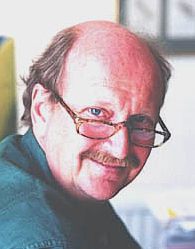 |
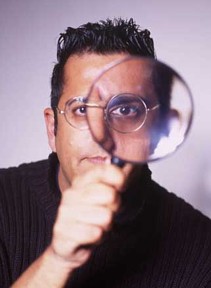 |
The Times published a letter from Edzard Ernst and Simon Singh on April 16th. In their forthcoming book, Trick or Treatment? Alternative Medicine on Trial, they go carefully through all the evidence for all sorts of ‘alternative’ treatments. They find some evidence that a handful of them work. For most the answer is ‘not enough evidence’, and for a number there is good evidence that many of them don’t work to any useful extent.
“Sir, For over two decades the Prince of Wales has been actively promoting alternative medicine and his Foundation for Integrated Health continues to encourage the use of treatments such as homoeopathy or reflexology.””In light of this “rigorous scientific evidence”, we strongly advise that the Prince of Wales and the Foundation for Integrated Health withdraw the publications Complementary Health Care: A Guide for Patients and the Smallwood report. They both contain numerous misleading and inaccurate claims concerning the supposed benefits of alternative medicine. The nation cannot be served by promoting ineffective and sometimes dangerous alternative treatments.”
Thank heavens that someone has the courage to say it as it is.
If only the ineffectual and ill-educated people in the Department of Health wouold do the same. But no, instead they gave £37 000 to the Prince of Wales Foundation to write their make-believe guides. And £900 000 to write nonsense for the Complementary and Natural Healthcare Council (also known as Ofquack), and Skills for Health,
The next day The Times ran an article by their science editor, Mark Henderson, Prince of Wales’s guide to alternative medicine ‘inaccurate’. Natasha Finlayson, of the Prince’s Foundation for Integrated Health, is quoted as saying “The foundation does not promote complementary therapies.”. That takes some beating for sheer bare-faced dishonesty.
Edzard Ernst appeared on the Today Program on 18th April. He was interveiwed by the formidable John Humphrys, along with Kim Lavely, Chief Executive, The Prince’s Foundation for Integrated Health (FIH). Ernst points out that the FIH guide suggests that chiropractic is effective in asthma, and that acupuncture is good for addiction, whereas the evidence says the opposite. Lavely retorts, rather lamely (OK I’m biassed).
Lavely: ” . . . we didn’t attempt to give detailed evidence on every therapy”. “We think they [the public] have the right to know and what doesn’t”
Humphrys: “Well isn’t that the whole point? the professor is saying here is that these things do not work, at least in terms of the claims that are made for them, such as homeopathy and chiropractic . . . ”
Lavely: “There are no claims made in this guide for what works and what doesn’t. What we have said is that some therapies are used for some things but we aren’t saying they are effective for those things . . . “
So, one might ask, what on earth is the use of a guide is it that offers no indication of effectiveness? Lavely’s second quotation contradicts directly her first. A pretty pathetic performance.
Listen to the interview [mp3 file]
The Sunday Times, on April 20th, pblished a pretty good review of Trick of Treatment?. “Their case against the folly, vanity and damage of HRH et al. is hard to argue with.”
Of course, the letters column drew the expected response from the quacks, most verging on the hilarious.
Another blow for the alternative industry came in the same week, The authoratitve Cochrane review confirmed earlier reports that vitamin supplements not only do not help you but some actually increase mortality. The antioxidant myth nevertheless rumbles on, and on, and on. There is too much money in it for it to die easily.
Predictably enough, the conclusions were denied by the Health Food Manufacturers’ Association (HFMA). They wheeled out several pop singers to say how wonderful their products are. Read about that pathetic defence on Holfordwatch.
Who is behind HFMA? Incidentally, HFMA are strangely reticent about the identity of their 120 members. They will not reveal who they are. Does anybody out there know the answer? I’ll buy a good dinner for anyone who can root this out. If it is anything like the ‘Health Supplements Information Service‘ it is likely to be backedby the very big pharmaceutical companies that the alternative industry loves to hate.
Take the test
Prince of Wales Guide
“Reflexologists work with a wide range of conditions including certain types of pain, particularly back and neck pain, migraine and headaches, chronic fatigue, sinusitis, arthritis, insomnia, digestive problems such as irritable bowel syndrome, and constipation, stress-related disorders and menopausal symptoms.”
Singh & Ernst
“The notion that reflexology can be used to diagnose health problems has been disproved and there is no convincing evidence that it is effective for any condition.”
Twenty-five hospitals from London and southern and eastern England have already either stopped sending any patients to the Royal London Homeopathic Hospital or agreed to fund only a handful A campaign has started o save it, but the arguments are far from convincing.
This is reposted from the original IMPROBABLE SCIENCE page
The news is out. It was in February this year when I first saw some “Commissioning Intentions 2007-08” documents from several London NHS Primary Care Trusts (PCT), indicating their intention to break their contracts with the RLHH on the very reasonable grounds that homeopathy doesn’t work. It seemed better to wait for the intentions to be implemented before saying much, because of the inevitable outcry from those who want sugar pills at the taxpayers’ expense.
Then, in March 2007, the Health Services Journal carried a story “PCTs consider alternative to homeopathic hospitals” (free registration, or read it here).
|
On 8 April 2007, The Observer carried a special report, prominently featured on page 3.
|
 Fisher and Queen, Observer 8 April 2007 |
Peter Fisher, clinical director of the RLHH, is quoted as saying
“Twenty-five hospitals from London and southern and eastern England have already either stopped sending any patients to the RLHH or agreed to fund only a handful.”
“Prince Charles is sympathetic, supportive and concerned. But he doesn’t feel it’s appropriate to intervene in any way because there’s been some adverse publicity before about him ‘meddling’. ”
Fisher attributes this to the letter sent to PCTs by 13 of us, last May, in which we advocated that the NHS should not be paying for “unproven or disproved treatments”. The leading signatory on this letter, Professor Michael Baum, is quoted in the Observer thus.
“If the Royal London were to close because of PCT deficits we would scarcely miss it”.
“Homeopathy is no better than witchcraft. It’s no better than a placebo effect. It’s patronising and insulting for adults.”
“Instead you could have a centre for palliative and supportive care, which would be of greater benefit and involve half the cost. Rather than losing something, we would gain something.”
The backlash
The reaction seems to have started with a letter from homeopath Carol Boyce. Her letter starts thus.
| ROYAL LONDON HOMEOPATHIC HOSPITAL UNDER SIEGE “Death by stealth. The Royal London Homeopathic Hospital (RLHH) – the visible presence of homeopathy within Britain’s NHS – an institution putting homeopathy in the public mind for the last 150 years – the place where homeopathy was seen to perform so well in the cholera epidemic of the 1840s – is being dealt a DEATH BLOW” |
I’d guess the very first sentence must be something of an embarrassment to the RLHH’s clinical director, who is far too sensible to believe that cholera can be cured by homeopathic sugar pills.
The red herring about cholera is repeated ad nauseam on hundreds of homeopathy sites (though most are curiously silent about whether they really believe that sugar pills can cure cholera). It is based on the report that during the London Cholera epidemic of 1854, of the 61 cases of cholera treated at the London Homeopathic Hospital, 10 died (16.4%), whereas the neighbouring Middlesex Hospital reported 123 deaths out of 231 cases of cholera (53.2%). Apart from the lack of any knowledge of the state of the patients on entry to hospital, it was also the case at the time that conventional medicine was no more based on evidence than homeopathy. Indeed the initial popularity of homeopathy could well have resulted not only from wishful thinking, but also because doing nothing at all (i.e. homeopathy) was less harmful than blood letting. The fallacy of the argument was spotted very early on by Oliver Wendell Holmes (senior) in his famous essay, Homeopathy and its Kindred Delusions.
But medicine moved on and homeopathy didn’t. The history of cholera, like that of tuberculosis, contrary to what is suggested by homeopaths, is a triumph for evidence based medicine. The epidemic was halted not by homeopaths but by the careful observations of John Snow that led to his removing the handle of the Broad Street pump. If medicine had been left to homeopaths, people would still be dying of these diseases.
Carol Boyce invites you to write directly to Queen Elizabeth II, to save the RLHH. She has also started an e-petition on the UK government site. The petition includes the words
| ROYAL LONDON HOMEOPATHIC HOSPITAL UNDER SIEGE
“The RLHH has been part of the Health Service for 150 years. ” “In 2005, 67% of GPs and 85% of practices in it’s [sic] Primary Care Trust, referred patients to the hospital. The hospital provides effective and most importantly, COST-EFFECTIVE treatments.” |
Ms Boyce seems not to have noticed that the Prince of Wales’ own Smallwood report decided that there was not enough evidence to come to firm conclusions about cost-effectiveness.
Peter Fisher himself has appealed for the survival of the RLHH in a letter dated 9 March 2007 [download copy of letter].
“The Royal London Homoeopathic Hospital needs your support
09/03/2007By Dr. Peter Fisher, Homeopath to Her Majesty, the Queen.
There is no silly talk about cholera here, but there is a useful list of Trusts who have decided to abandon "unproven and disproved treatments". Fisher recommends you to read Marcia Angell’s book to learn about the deficiencies of the drug industry. I recommend that too. I also recommend Dan Hurley’s book on the even greater deficiencies of the quackery industry.
Fisher suggests you write to your MP to prevent closure of the RLHH.
I suggest you write to your MP to support closure of the RLHH.
There’s no remedy for the Prince of Quacks
This is the title of a piece by Francis Wheen in the London Evening Standard, 16 May 2006. Francis Wheen is the author of the Top ten delusions.
“Prince Charles travels to Geneva next week to deliver the keynote speech at the annual assembly of the World Health Organisation. Some mistake, surely?” “The WHO describes Charles as the president of the Prince’s Foundation for Integrated Health and “patron of a number of health charities”. It omits to add that his views on medicine are barmy – and pernicious. ”
“WHO delegates from 192 nations have plenty to discuss during their five-day meeting – HIV/Aids, sickle-cell anaemia, preparations for a flu pandemic, the eradication of polio and smallpox. Why waste precious time listening to the heir to the British throne, who has spent more than 20 years displaying his ignorance of medical science?”
“The prince has never met a snake oil vendor he didn’t like. A couple of years ago he urged doctors to prescribe coffee enemas to cancer patients, a suggestion which provoked this rebuke from Professor Michael Baum of University College London: “The power of my authority comes with a knowledge built on 40 years of study and 25 years of active involvement in cancer research. Your power and authority rest on an accident of birth.” ”
The Prince’s Foundation for Integrated Health publishes Complementary healthcare: a guide for patients which is full of wishful thinking. For example, it tells the unfortunate patient that
“Homeopathy is most often used to treat chronic conditions such as asthma; eczema; arthritis; fatigue disorders like ME; headache and migraine; menstrual and menopausal problems; irritable bowel syndrome; Crohn’s disease; allergies; repeated ear, nose, throat and chest infections or urine infections; depression and anxiety.”
but says nothing at all about whether or not they work. That is just irresponsible. And to describe pills that contain no trace of the substance on the label as ”very diluted” is plain dishonest .
This item was transferred from the old IMPROBABLE SCIENCE page.

